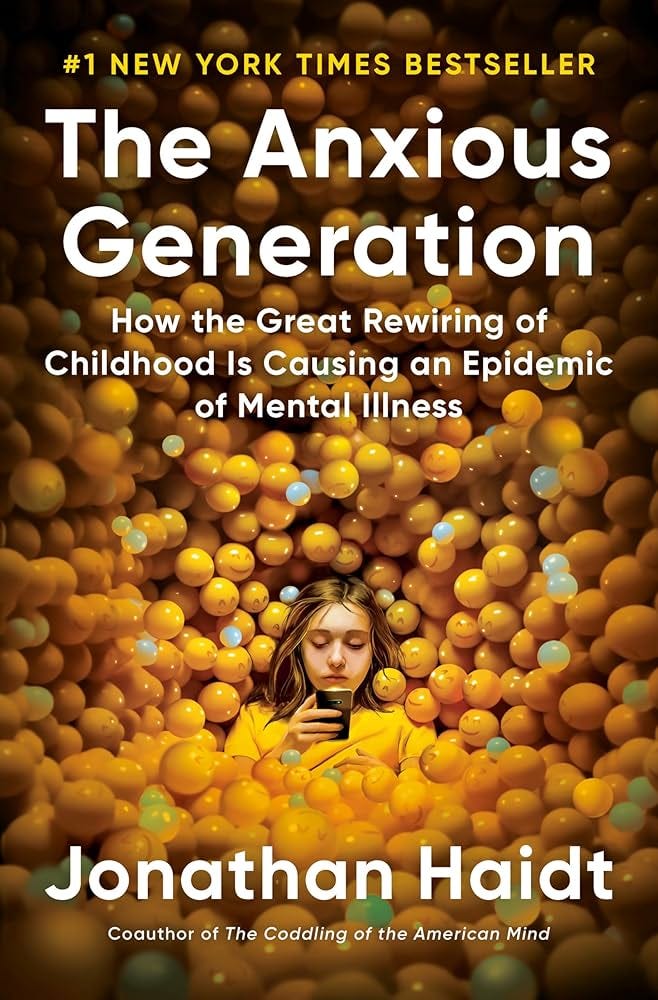A few weeks ago, United Hatzalah had its young leadership gala in New York City. The honoree was Scooter Braun — who turned it around and said that he was instead going to give the honor to Joe Teplow, the remarkable entrepreneur and EMT who went with him to Israel after October 7 and introduced him to United Hatzalah.
In both Scooter and Joe’s talks, they referenced the dual (or combined) purpose of the evening: to enable committed Jewish singles to meet each other while supporting the life-saving work of United Hatzalah.
After Scooter and Joe spoke, I took to the stage in my capacity as the co-founder and Chairman of United Hatzalah. I said that I would be brief and to the point — Erica and I would donate an ambucycle in honor of any couple who meets tonight and gets married, and Eli Beer will arrange for a United Hatzalah volunteer to bring it to the wedding.
(Scooter Braun and Joe Teplow at the 2nd Annual United Hatzalah Young Leadership Gala 11/19/24)
I then got off the stage to leave the event — because it was very crowded, and the 1200 young people did not need me any longer to meet each other.
But I couldn’t leave immediately, as several young women came up to me separately to confide that they really wanted to date and marry someone — but weren’t having any success. The interesting thing: Each of these women was, by any measure, stunning — and, at least seemingly, lovely.
When I got home, I told Erica it was the most profound market failure I had ever seen.
In what kind of culture should this kind of market failure exist?
I found out the next evening. That was the night of the 3I Members Summit. 3I Members is a community of investors and businesspeople (exited founders, family office leaders, large fund managers and professional athletes) who share deals, do collective diligence and engage in genuine community with each other that I co-founded and Chair. Members come from all over the world, and many were meeting each other in person for the first time that evening.
At the registration table, I was talking with two members from outside New York — both people who, like many 3I members, have kids in their 20s. They were talking about young men they knew through their kids — promising, successful, smart, kind and handsome people. These young men did not have girlfriends — and did not especially want one. Other members joined in the conversation too, knowingly.
I went home that night and told Erica that I had not witnessed a market failure at the United Hatzalah gala. There was no market.
This is not just an anecdote. In my forthcoming book, “God Was Right: How Modern Science Proves the Torah is True”, I discuss the Torah’s highly developed and very interesting theory of marriage — which encompasses when to do it, why to do it and how to do it. What I realized after these two events, was that the Torah and modern social science have the perfect guidance for these young folks.
The Sexual Revolution, which started around 55 years ago, abolished all of the norms set by the Torah. The result, around 60 years in: We are in what the late social anthropologist Helen Fischer called a “sexual recession.” Today, it might be a depression. The reasons -- which are covered in “God Was Right” -- are reflected in the data on casual sex (it is dissatisfying for women and men, for slightly different reasons), pornography, video games and other things. (Yes, the data shows that single men are happily substituting video games — particularly new releases — for sex).
At our 3I Members Summit, the keynote speaker was Jonathan Haidt, the great social scientist whose remarkable book “The Anxious Generation” has been very deservedly parked on the best-seller list since its release in March of this year. I did the Q&A with Jon.
Before the talk, I told Jon about the conversation at the registration desk the night before. He nodded in vigorous agreement, and asked that it be the first question — as it would launch into so much of what he wanted to address.
Jon explained that the lack of conventional dating is at least in significant part due to the impact of social media. Young people are spending their formative years engaging online — breaking occasionally for group chats. They are not developing the social skills that are needed to even date.
(Haidt, J. (2024), The Anxious Generation, Penguin Press, New York)
The Torah, of course, did not address social media — or, for that matter, pornography, video games and other very modern impediments to the formation of romantic relationships.
But it has the solution to the problem I observed at the United Hatzalah gala, the 3I Members dinner and in the research for “God Was Right.” There are only two times in the Torah when someone says something is “not good.” The first is God, observing the solitary Adam — who said: “It is not good for man to be alone.” God gives Adam a wife. The other is Jethro who, observing his son-in-law Moses governing in the desert, told him that his practice of leading alone was “not good.” Jethro recommends that Moses create a system of intermediate judges. Moses immediately complies, and sets the framework for a sustainable political structure for the emerging Jewish nation. In both cases, it is solitude that is ‘not good’, and relationships are the remedy.
Per Jonathan Haidt, a generation is growing up “alone” — yes, communicating with others, but in a way that inhibits the social development that should provide comfort and competence in dating, marriage and other relationships that constitute genuine togetherness.
This sounds serious, and it is. But it is no cause for despair. Jonathan Haidt spoke at the 3I Members summit about changes that parents can enact to help their children prepare for healthy and rewarding relationships. The most important one: Encouraging children to play, with few rules and minimal adult supervision. Play, which he explains is such an evolutionary imperative that it is observed in all mammals, helps children assess and manage risks, create opportunities, work through disagreements, find solutions collaboratively, and bounce back from disappointment.
It is no wonder then, why the prophet Zachariah (8:5) articulated his vision for Jerusalem as he did: “And the streets of the city shall be full of boys and girls playing in its streets.” This timeless vision – at once so moving and relatable – has been the perfect expression of divine blessing for thousands of years. Why? Because of the joy it evokes – of children having fun and developing the characteristics and skills that will enable them to build the relationships (including the apparently elusive dating relationships) that will make them happy, fulfilled and purposeful adults in the years to come.






Mark-Very insightful commentary. Many of our friends have young women that should definitely be pursued by intelleigent, succesful men but aren't. Parents of young men neeed to encourage their sons to actively seek out women that can become great marriage partners. Let's help create an active and healthy dating market!
I don't know if I would agree that sexual revolution caused sexual recession. Also I wonder if what's happening in the US is repeated in many places abroad - I know that it is in some, but not others.
In the US, many things related to sex are high-risk activities. It is very easy be accused of impropriety, harassment, or even a crime. And if a behavior is criminalized, it usually leads to a cascade of charges that could amount to different descriptions of the same thing, which can easily make a quarter to half of a person's (now likely to be much shorter) lifespan a living hell. Just consider the enormity of this risk for a moment.
So yes, in the US men choose to avoid these problems. Sex is just not worth losing one's reputation, job of freedom.
I won't even mention the impact of online dating and sites like OnlyFans.